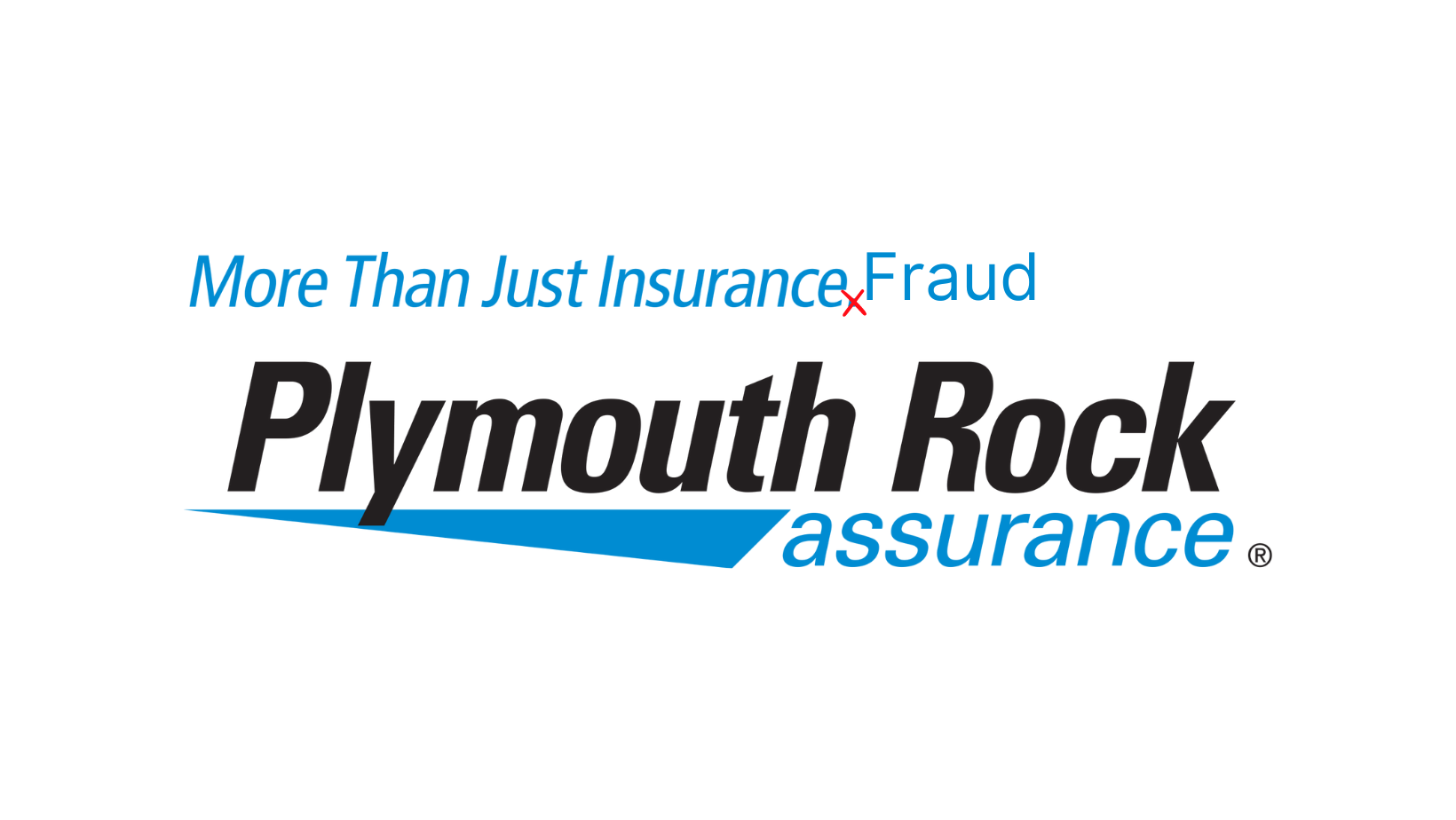Unveiling Unethical Practices: My Battle with Plymouth Rock Assurance Over a Hail Damage Claim
In today's blog post, I want to share my personal battle with Plymouth Rock Assurance over my hail damage claim.

Imagine this: you wake up one morning to find your beloved car covered in dents, a victim of a recent hailstorm. Frustrating, right? Well, buckle up because the real storm is about to begin – dealing with an insurance company that would rather delay, defraud, and employ unethical tactics than honor your legitimate claim.
In today's blog post, I want to share my personal battle with Plymouth Rock Assurance over my hail damage claim. But this goes beyond just one individual's struggle; it shines a light on the larger issue of unethical practices within the insurance industry.
So grab a cup of coffee and join me as we uncover how Plymouth Rock Assurance tried every trick in the book to avoid fulfilling their responsibilities. Trust me when I say you won't believe what I discovered during my research into their shady business practices!
Insurance is meant to provide peace of mind, a safety net when unexpected events occur. However, my experience with Plymouth Rock Assurance made me question the integrity of the entire industry. It became clear to me that my struggle was not an isolated incident but rather a symptom of a much larger issue.
When insurance companies prioritize their profits over serving their policyholders, it erodes trust in the system. Sadly, unethical practices such as delaying claims and defrauding customers seem all too common among some insurers. These tactics are designed to wear down individuals like myself who simply want what we are entitled to - fair compensation for legitimate damages.
But why does this continue to happen? Is it due to loopholes in regulations or lack of oversight? Or is it a cultural problem within certain companies that places profit above ethics? Whatever the root cause may be, one thing is clear: these unethical practices harm consumers and tarnish the reputation of insurance providers.
As I delved deeper into researching Plymouth Rock Assurance's business practices, I discovered numerous instances where they had been caught engaging in unethical behavior. From deliberately undervaluing claims to wrongfully denying coverage based on technicalities, it seemed like there was no limit to their deceptive tactics.
The consequences of these actions extend far beyond individual policyholders like myself. When insurance companies refuse to honor legitimate claims or employ delay tactics, it puts financial strain on individuals who may be relying on those funds for necessary repairs or replacements. It undermines faith in the insurance industry overall and makes honest people skeptical about purchasing coverage they need for protection against unforeseen circumstances.
It is high time that we shed light on these dark corners of the insurance world and hold companies accountable for their actions. By sharing our stories and raising awareness about unethical practices, we can bring about change – pushing regulators towards stricter enforcement measures and encouraging consumers to make informed choices when selecting an insurer.
In my next blog post installment, I will delve into the specific unethical practices I encountered in my battle with Plymouth Rock Assurance.
My battle with Plymouth Rock Assurance over a hail damage claim
The process began with documenting the extensive hail damage through clear photo evidence. As a diligent policyholder, I believed that providing undeniable proof of the damage would expedite the claim process. However, to my disbelief, Plymouth Rock Assurance decided to deny my claim based on an engineer's report, completely disregarding the substantial visual evidence.
The initial shock of the denial was followed by an even more disturbing revelation. Elaine Maniscalco, an agent at Plymouth Rock Assurance, took an illegal and unethical stance by attempting to remove overhead and profit (O/P) from my claim. O/P is a standard industry practice meant to ensure that contractors can cover their operational costs, including administrative overhead and reasonable profit margins. Maniscalco's attempt to strip this essential component from my claim was nothing short of an attempt to defraud me of the rightful compensation needed to restore my property.
As I fought for my rightful claim, the battle took another turn for the worse. Shawn Smith, a supervisor for Plymouth Rock Assurance, took my phone call after I had attempted to rectify the claim every way knew how. Shawn didnt look at a photo. He made the decision to deny the claim based off of no evidence whatsoever. He stated that the engineers report, which is a highly unethical practice in property claims, is what he is utilizing to deny the claim.
Shawn is the epitome of what the insurance carriers look for in an employee. Someone who will blindly defend their billions instead of doing what is right by his neighbor. Fulfilling the contractual obligation that was agreed upon and that his company was paid handsomley for. Remember, its not fraud if the insuracne company is doing it.





Above are the photos from my claim, I was advised that is not actually hail damage and that no number of licenced roofers would tell them different.
In my pursuit of resolution, I reached out countless times to Supervisor Michael Farren. Unfortunately, my attempts to communicate were met with silence and inaction. This unwillingness to engage with a concerned policyholder further solidified my belief that Plymouth Rock Assurance was operating in bad faith.
Unmasking Deeper Problems: Ethical Standards and Trust
The unethical practices I encountered while dealing with Plymouth Rock Assurance are indicative of a larger problem within the company. The decision to deny a claim based on an engineer's report, despite clear photo evidence, goes against ethical standards that the insurance industry should uphold. Furthermore, the attempts to defraud by stripping O/P and the disregard for photo evidence demonstrate a corporate culture that values profits over the well-being of its policyholders.
My experience with Plymouth Rock Assurance has been a cautionary tale of what can happen when an insurance carrier chooses to delay, deny, and potentially defraud policyholders in the face of legitimate claims. The actions of Elaine Maniscalco, Shawn Smith, and the unresponsive attitude of Michael Farren reflect a company that lacks integrity, empathy, and a commitment to ethical business practices. As consumers, we must be vigilant and hold insurance providers accountable for their actions, ensuring that they honor their responsibilities with the highest ethical standards.
The different ways that Plymouth Rock Assurance has been found to be unethical.
Unethical practices can take many forms, and Plymouth Rock Assurance has unfortunately been found guilty of engaging in several of them. One glaring example is their deliberate delay tactics when it comes to settling hail damage claims. Countless policyholders have shared stories of endless paperwork, multiple inspections, and stalling tactics that seem designed to wear down the claimant.
Another unethical practice employed by Plymouth Rock Assurance is their blatant attempt to defraud customers by undervaluing their hail damage claims. Policyholders often find themselves offered paltry settlements that are nowhere near enough to cover the cost of repairs or replacements. This tactic not only leaves customers out of pocket but also erodes trust in the insurance industry.
Furthermore, there have been numerous reports highlighting how Plymouth Rock Assurance misrepresents policy terms and conditions to exploit loopholes and deny legitimate hail damage claims. They may conveniently claim that certain types or amounts of damage are not covered under the policy, leaving homeowners shocked and frustrated.
In addition to these specific instances, Plymouth Rock Assurance has also displayed a general lack of transparency in its dealings with customers. Many individuals report feeling misled or deceived about coverage details during the purchasing process. This lack of openness creates an environment where unethical practices can thrive.
These unethical behaviors have serious consequences for those affected by hail damage incidents. Homeowners are left footing bills they thought would be covered by insurance policies they diligently paid premiums for. The financial burden can be significant and even cause long-term hardship for some families.
As someone who has personally experienced these issues with Plymouth Rock Assurance, I am committed to acting against these unethical practices. By sharing my story and raising awareness about this company's questionable behavior, I hope to empower other policyholders facing similar challenges while holding Plymouth Rock Assurance accountable for its actions.
Plymouth Rock declined response to this article.
